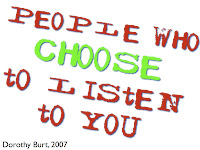 Analysing your Audience - no degree required!
Analysing your Audience - no degree required!Most people who go to the effort of developing an online public space, whether adult or child, begin to develop curiosity about whether anyone is looking at it. And if they are, then who are these people and why do they choose to view this page out of all the millions on the internet. It seems to be a pretty common experience that the first time someone mentions that they read your page or blog you experience a feeling of surprise. Did you? Why did you do that? And I think that many of us who have started up a page with a particular audience in mind have discovered that that there are a number of people outside our target audience who are also interested.
So how do you find out about your audience?
It is dead easy actually. In a previous post I wrote about Feedjit and the graphic way it alerts us to who has been on the web page - and gives us a few details along the way. But if you really want some information for free, then Google Analytics is a must have. It's one of those tools you sign up for and you get a piece of code to place on your web pages. This code sends information back to Google about about your visitors - things like where they come from, what site they were on when they came, how many times they have visited your pages, how long they spent there, what they were searching for if they came from a search engine etc.
It is not as difficult or geeky to do as you might think, and lots of tutorials are available on YouTube if you can't follow Google's own instructions!
Once it becomes active you visit your Google Analytics account and discover more data than most of us could possibly want (unless our web page is part of our business). You can export data in a variety of formats, incorporate it with Google Earth, and get reports sent to you or anyone you choose. And if you are a teacher working with students on a website or blog you have a wealth of data available for lots of statistical analysis fun.
It should come with a warning though - this analysis stuff can become addictive!





